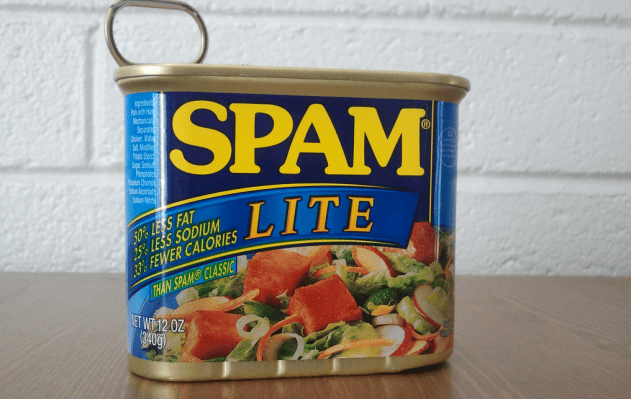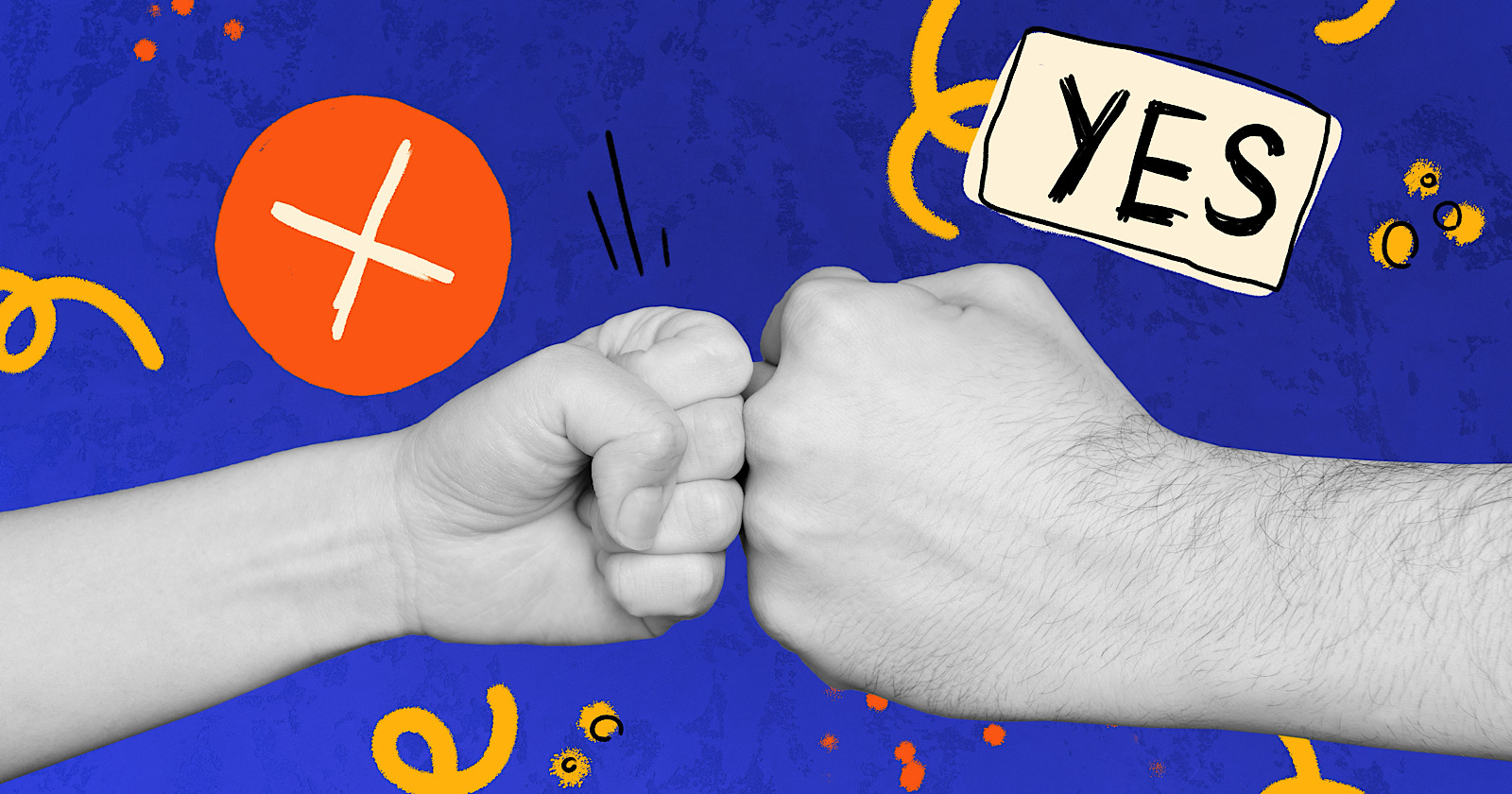Bing, Bard, and ChatGPT: AI chatbots are rewriting the internet
Álvaro Bernis / The VergeHow we use the internet is changing fast, thanks to the advancement of AI-powered chatbots that can find information and redeliver it as a simple conversation. Continue reading…
/cdn.vox-cdn.com/uploads/chorus_asset/file/24440533/AI_Hands_A_Bernis_02.jpg)
Big players, including Microsoft, with its Bing AI (and Copilot), Google, with Bard, and OpenAI, with ChatGPT-4, are making AI chatbot technology previously restricted to test labs more accessible to the general public.
We’ve even tested all three chatbots head-to-head to see which one is the best — or at least which one gives us the best responses right now when it comes to pressing questions like “how do I install RAM into my PC?”
How do these large language model (LLM) programs work? OpenAI’s GPT-3 told us that AI uses “a series of autocomplete-like programs to learn language” and that these programs analyze “the statistical properties of the language” to “make educated guesses based on the words you’ve typed previously.”
Or, in the words of James Vincent, a human person, “These AI tools are vast autocomplete systems, trained to predict which word follows the next in any given sentence. As such, they have no hard-coded database of ‘facts’ to draw on — just the ability to write plausible-sounding statements. This means they have a tendency to present false information as truth since whether a given sentence sounds plausible does not guarantee its factuality.”
But there are so many more pieces to the AI landscape that are coming into play — and there are going to be problems — but you can be sure to see it all unfold here on The Verge.
Google is letting more testers try out AI features in Workspace.
The company says it’s expanding its pool of trusted testers by “more than 10X today,” which introduces generative AI features across its Workspace apps.
Google is testing AI features in Docs and Gmail to start, allowing users to generate, summarize, or brainstorm text, as well as condense meeting notes into an email.
Google is apparently going to be more secretive about its AI breakthroughs.
A paper (PDF) published by Google described the Transformer neural net architecture that is the “T” in OpenAI’s GPT, but the Washington Post reports we shouldn’t expect to see that happen again.
Now the Post says Google Research leader Jeff Dean shifted away from a previous approach of “encouraging researchers to publish academic papers prolifically.”
Instead:
Google would take advantage of its own AI discoveries, sharing papers only after the lab work had been turned into products, Dean said, according to two people with knowledge of the meeting, who spoke on the condition of anonymity to share private information.
Amazon plans to rework Alexa in the age of ChatGPT
Photo by Jennifer Pattison Tuohy / The Verge
Amazon is looking to add new AI chatbot technology to Alexa, reports Insider based on leaked documents. The voice assistant needs reanimation in a world now seemingly infatuated with generative AI like OpenAI’s ChatGPT and Google’s Bard.
One example in the document describes Alexa generating a bedtime story after an eight-year-old asks it to tell a story about a “cat and a moon.” And in true ChatGPT-style, it makes up a whole story about “Mittens, the first cat to ever go to the moon.” It also describes the use of an Echo Show camera that sees the child holding an Olaf toy, so it incorporates the character into the story.
Microsoft’s Bing Chat AI is now open to everyone, with plug-ins coming soon
Illustration: The Verge
Microsoft is making its Bing GPT-4 chatbot available to everyone today, no more waitlist necessary. All you need to do is sign in to the new Bing or Edge with your Microsoft account, and you’ll now access the open preview version that’s powered by GPT-4. Microsoft is also massively upgrading Bing Chat with lots of new features and even plug-in support.
This open preview launch comes nearly two months after Microsoft experimented with removing the waitlist for its new Bing Chat feature. The chatbot originally launched in a private preview in February, and Microsoft has been gradually opening it up ever since.
Microsoft’s Bing chatbot gets smarter with restaurant bookings, image results, and more
Microsoft is revealing a big upgrade for its Bing chatbot today that adds image and video answers, restaurant bookings, chat history, and some smarter Microsoft Edge integration. These new features also coincide with Microsoft making Bing Chat available for anyone to try, moving from private to public preview.
Perhaps the biggest addition is a new Actions feature in Bing Chat and Edge. You’ll now be able to use Microsoft’s Bing AI to complete tasks without having to navigate back and forth between sites. So if a search result recommends a restaurant, it can then find a reservation time that works for you and help you book it all in the chat interface.
Snapchat is already testing sponsored links in its My AI chatbot
Image: Snap
Snap has already begun experimenting with sponsored links in its My AI chatbot. During the NewFronts advertising event on Tuesday, the company announced that the bot will start surfacing paid links that are relevant to a conversation.
For example, Snap says if you’re using My AI to figure out what to have for dinner, the bot might suggest a sponsored link that leads to a local restaurant or delivery app after providing an initial response. It might even surface links for an airline or hotel if you’re chatting with My AI about planning a trip.
Writers are striking and AI rights are on the table.
The Writers Guild of America (WGA) voted to strike this morning, and though low pay is the main incentive, there’s another contentious issue: AI. The WGA wants to protect members so their work is not used by Hollywood studios to train AI tools that replace them. As Vox explains, it’s a fight that will likely be replicated across many industries in the years to come.
Why chatbots aren’t the future of computer interfaces.
A clear and convincing argument from developer and designer Amelia Wattenberger. As with voice assistants like Siri, chatbots lack affordances (they don’t tell us what they’re capable of) and require too much work to get the right results. But — and it’s an important but — that doesn’t mean the underlying tech isn’t itself useful. It just takes thought and care to implement it.
AI is being used to generate whole spam sites
Photo by Roberto Machado Noa/LightRocket via Getty Images
AI chatbots are being used to generate news stories and blog posts for online content farms in the hopes of attracting a trickle of ad revenue from the stray clicks of web users.
Experts have been warning for years that such AI-generated content farms will soon become commonplace, but the wider availability of tools like OpenAI’s ChatGPT has now made these warnings a reality. NewsGuard, a for-profit organization that rates the trustworthiness of news sites, highlighted the problem in a recent report identifying 49 sites “that appear to be almost entirely written by artificial intelligence software.”
Samsung tells employees not to use AI tools like ChatGPT, citing security concerns
Illustration by Alex Castro / The Verge
Samsung has banned the use of generative AI tools like ChatGPT on its internal networks and company-owned devices over fears that uploading sensitive information to these platforms represents a security risk, Bloomberg News reports. The rule was communicated to staff in a memo which describes it as a temporary restriction while Samsung works to “create a secure environment” to safely use generative AI tools.
The biggest risk factor is likely OpenAI’s chatbot ChatGPT, which has become hugely popular not only as toy for entertainment but as a tool to help with serious work. People can use the system to summarize reports or write response to emails — but that might mean inputting sensitive information, which OpenAI might have access too.
ChatGPT returns to Italy after ban
Illustration: The Verge
ChatGPT maker OpenAI has restored access to its service in Italy, saying it has implemented changes to satisfy Italian regulators. “ChatGPT is available again to our users in Italy,” it said in a statement published by The Associated Press and also sent to The Verge. “We are excited to welcome them back, and we remain dedicated to protecting their privacy.”
OpenAI said it had “addressed or clarified” the issues raised by the Italian Data Protection Authority (or GPDP) in late March. The GPDP accused ChatGPT of unlawfully collecting users’ data and failing to prevent underage users from accessing inappropriate material, leading OpenAI to block ChatGPT in the country. The company was given 20 days to address the issues, and regulators said in mid-April that ChatGPT could return if it did so by April 30th.
Meta is talking to Microsoft and OpenAI about making an AI coding assistant for its engineers.
But the cost is “crazy” at about seven cents per query, CTO Andrew Bosworth recently told employees. From last night’s edition of my Command Line newsletter:
“That’s the only place in the company we’re really considering working with Microsoft and OpenAI, just because there’s a natural business integration there,” he explained. “Otherwise, we’re working on a companion that is more about all of our code and our internal documentation, built on our own infrastructure. We are moving very fast. I think we’ll have something to play with internally, I’m hoping in mid-June, maybe late June.”
You can sign up at the link below to read the whole newsletter, which is sent to subscribers every Thursday.
Bing on Edge barges in on Bard
Screenshot: Umar Shakir / The Verge
Microsoft’s Edge can be a great Chromium browser alternative to Google’s Chrome, but the former is displaying some annoying new rivalry antics: advertising Microsoft’s Bing AI chatbot while you’re trying out Google’s Bard AI. As pointed out by developer and Twitter user Vitor de Lucca, a new developer version of Edge will now display a new Bing ad next to the Google Bard URL.
When pointing Edge to bard.google.com, a new animated “compare answers with the AI-powered new Bing” slide appears in the upper-right side of Edge’s address bar. Then, the text slides back to the right and leaves behind a Bing icon that seems pretty redundant considering a similar icon is off to the right by default.
Mark Zuckerberg says Meta wants to ‘introduce AI agents to billions of people’
Illustration by Alex Castro / The Verge
Meta sees “an opportunity to introduce AI agents to billions of people in ways that will be useful and meaningful,” CEO Mark Zuckerberg told investors today.
While he was vague about how exactly Meta will add generative AI to its apps, Zuckerberg gave the most detailed preview yet during the company’s earnings call for the first quarter of this year, when it reported $28.6 billion in revenue and a record 2 billion daily users of the Facebook app, beating Wall Street’s estimates. Meta’s profit for the quarter was $5.7 billion, a 24 percent decrease from the same time last year.
OpenAI will let you turn off your chat history in ChatGPT
Illustration: Alex Castro / The Verge
OpenAI now gives you the option to switch off your chat history when using its ChatGPT chatbot. As explained in a blog post, OpenAI says it won’t save your previous conversations when you turn this setting off, nor will it use those conversations to help train its AI models.
The company will still store new ChatGPT conversations for up to 30 days to “monitor for abuse” before it permanently deletes them, however. It also notes that the settings won’t apply to any existing conversations you had with chat history turned on, which means OpenAI may still use them for model training.
AI chatbots are for suckers, crypto edition.
The fine folks at Protos had a little talk with Binance’s AI bot and... listen, parting chumps from their money is a novel way to monetize AI.
‘As an AI language model’: the phrase that shows how AI is polluting the web
Image: The Verge
A big worry about the rise of AI language models is that the internet will soon be subsumed in a tidal wave of automated spam. So far, these predictions have not yet come to pass (if they prove true at all), but we are seeing early signs that tools like ChatGPT are being used to power bots, generate fake reviews, and stuff the web with low-grade textual filler.
If you want proof, try searching Google or Twitter for the phrase “as an AI language model.” When talking to OpenAI’s ChatGPT, the system frequently uses this expression as a disclaimer, usually when it’s asked to generate banned content or give an opinion on something subjective and particularly human. Now, though, “as an AI language model” has become a shibboleth for machine learning spam, revealing where people have set up automated bots or copied and pasted AI content without paying attention to the output.
AI can be a study buddy, but can’t write papers, says UC Berkeley.
Schools are getting to grips with the impact of AI language models like ChatGPT, and UC Berkeley School of Law is one of the first to adopt formal rules, reports Reuters.
They’re pretty unsurprising: students can use AI for research but not to help write submitted assignments. With detection software unreliable, though, the whole thing is still a matter of trust.
Google’s big AI push will combine Brain and DeepMind into one team
Image: Google
DeepMind, the artificial intelligence company acquired by Alphabet in 2014, is merging with Google’s Brain team to form Google DeepMind. In a post shared by Alphabet and Google CEO Sundar Pichai, he says the combined groups will “significantly accelerate our progress in AI.”
DeepMind CEO Demis Hassabis will serve as the CEO of Google DeepMind, where Pichai says he will “lead the development of our most capable and responsible general AI systems.” Meanwhile, Jeff Dean, Google’s former senior vice president of Google Research and Health who co-founded the Brain team, will take on the role of Google Research and Google DeepMind’s chief scientist.
Microsoft’s AI Copilot is coming to Viva.
Microsoft’s Copilot push is expanding to its Viva platform soon. Viva is an employee platform and portal that Microsoft is pushing as a modern Intranet alternative for the digital era of work.
It’s now being upgraded with Copilot AI that will help draft OKRs, create posts in workplace communities, and generate knowledge summaries. Copilot in Microsoft Viva will start rolling out later this year.
Elon Musk threatens to sue Microsoft
Illustration: Kristen Radtke / The Verge; Image: Getty Images
Elon Musk is threatening to take legal action against Microsoft over claims that the company “trained illegally using Twitter data.” The billionaire’s statement came in response to a tweet noting that Microsoft’s advertising platform announced it would stop supporting Twitter, reportedly due to Twitter’s changes requiring payment to access its API.
Musk’s threat is vague but appears to be over OpenAI using Twitter data to train the large language model behind products like ChatGPT. OpenAI, obviously, is not Microsoft, but it did recently receive a significant investment from the company, which is building AI into tools like Bing, Edge, and Microsoft 365.
Stability AI announces new open-source large language model
Illustration by Alex Castro / The Verge
Stability AI, the company behind the AI-powered Stable Diffusion image generator, has released a suite of open-source large language models (LLMs) collectively called StableLM. In a post shared on Wednesday, the company announced that its models are now available for developers to use and adapt on GitHub.
Like its ChatGPT rival, StableLM is designed to efficiently generate text and code. It’s trained on a larger version of the open-source dataset known as the Pile, which encompasses information from a range of sources, including Wikipedia, Stack Exchange, and PubMed. Stability AI says StableLM models are currently available between 3 billion and 7 billion parameters, with 15 to 65 billion parameter models arriving later.
Snapchat is releasing its AI chatbot to everyone for free
Image: Snap
Snap is releasing its “My AI” chatbot to all of Snapchat’s 750 million monthly users for free, a move that comes less than two months after the OpenAI-powered bot was first made available to the app’s more than 3 million paid subscribers.
My AI is also becoming a more integral part of Snapchat. It can now be added to group chats by mentioning it with an @ symbol, and Snap will let people change the look and name of their bot with a custom Bitmoji avatar. In addition, My AI can now recommend AR filters to use in Snapchat’s camera or places to visit from the app’s map tab. And Snap plans to soon let people visually message My AI and receive generated responses; an example shown during the company’s annual conference today showed a photo of tomatoes in a garden, prompting the bot to respond with a generated image of gazpacho soup.
Google employees label AI chatbot Bard ‘worse than useless’ and ‘a pathological liar’: report
Illustration: The Verge
Google employees repeatedly criticized the company’s chatbot Bard in internal messages, labeling the system “a pathological liar” and beseeching the company not to launch it.
That’s according to an eye-opening report from Bloomberg citing discussions with 18 current and former Google workers as well as screenshots of internal messages. In these internal discussions, one employee noted how Bard would frequently give users dangerous advice, whether on topics like how to land a plane or scuba diving. Another said, “Bard is worse than useless: please do not launch.” Bloomberg says the company even “overruled a risk evaluation” submitted by an internal safety team saying the system was not ready for general use. Google opened up early access to the “experimental” bot in March anyway.

 Tekef
Tekef 






























![Are You Still Optimizing for Rankings? AI Search May Not Care. [Webinar] via @sejournal, @hethr_campbell](https://www.searchenginejournal.com/wp-content/uploads/2025/06/1-1-307.png)

![35-year-old American moved to Chengdu and lives on $30,000 a year: '[It's] poverty in America, but in China I'm living large'](https://image.cnbcfm.com/api/v1/image/108167583-1751548516689-chinacelia1.jpg?v=1751549197&w=1920&h=1080)